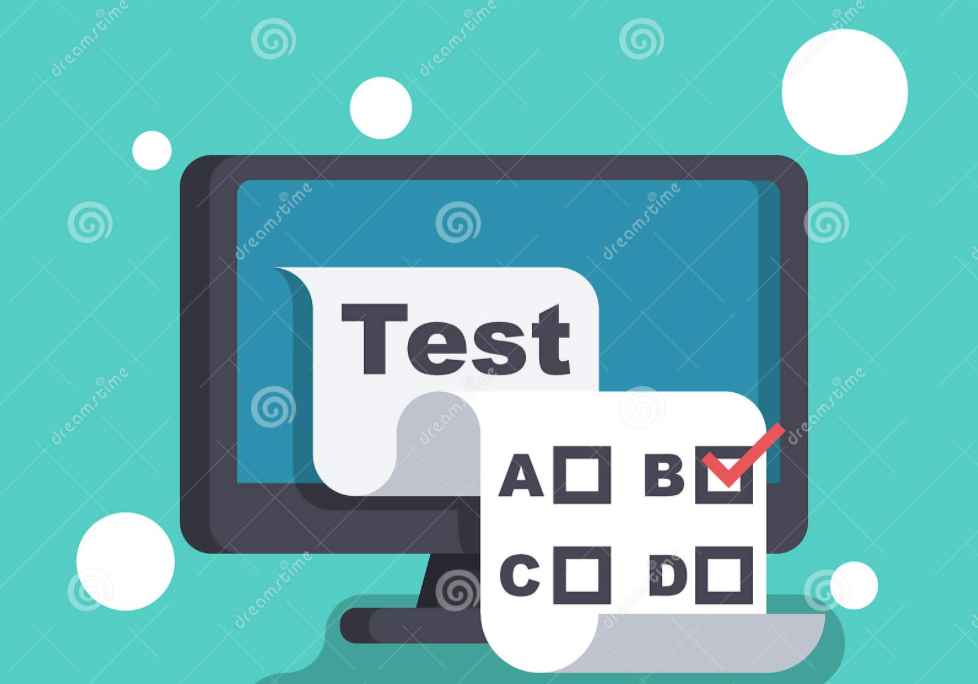This week, the College Board announced that starting with the class of 2025 (current high school freshmen), test-takers will exclusively take a shorter, digital, adaptive SAT. By the spring of 2024, all SATs and PSATs administered in the US and abroad will be completely digital.
A Growing trend
For decades, testing agencies have been making the shift from paper to digital testing. In 1997, the GRE went digital, followed by the GMAT and TOEFL in 1998. The MCAT, LSAT, and many other standardized tests are now digital as well. The College Board is following a long-line of testing agencies ditching scantrons for more secure, reliable, and efficient computer-based testing.
Test-security Issues
Paper-based testing is inherently insecure. Moving around stacks of paper with highly sensitive information creates infinite security issues for testing agencies. A single bad actor who accesses and shares a fixed-form paper test can ruin a test for a whole country. We have seen this in Egypt, Saudi Arabia, Hong Kong, China, South Korea and beyond, where test breaches canceled test administrations. As a result of the security breaches, the ACT shifted all of its international test-takers to digital testing in 2018. In October 2018, the US had its first domestic breach which led to a cancellation of an ACT test date for US test-takers. The pressure has been mounting for testing agencies to move away from paper.
Benefits of Computer Adaptive Testing
The shift from fixed-form paper tests to dynamic, digital, adaptive tests, can benefit students in many ways:
-
A shorter test. Digital adaptive tests calibrate questions to the appropriate difficulty level for each student, based on that student’s responses. This means a robust score can be obtained in less time. The College Board announcement indicates that the new testing time will be reduced by roughly a third, from a three-hour to an approximately two-hour assessment. This is a huge win for students, eliminating some of the effects of fatigue from an extended testing administration.
-
More time per question. Students will have more time to answer each question. This means that students’ scores will be less tied to processing speed, a win for all students, especially those who need more time to process.
-
Shorter passages. Shorter reading passages will put less of a burden on working memory. Hunting for relevant content through a long passage will become a thing of the past.
-
Eliminates the reliance upon proctors for managing timing. Generations of students have relied upon proctors to manage the accurate timing of testing administrations, from the calling of time and the giving of timing reminders. An automated timing feature will now be embedded into every SAT and control the accuracy of the timing. All test takers benefit when the experience is more reliable and consistent.
-
An embedded graphing calculator for every student. Students will have the option of bringing their own calculator, and every test will now have a full-featured calculator embedded into the test, available on all math sections.
-
No more issues with gridding or bubbling in items. Students can get off track with bubbling on scantron answer sheets. The new system eliminates this issue, and students can actually flag items for review if they have time left at the end of a section.
-
Superior accommodations for students with disabilities. Shifting to a digital administration is a win for students with disabilities. Managing extended time or extra breaks becomes easier with computer-based testing. If the ACT’s international digital testing is an indication of what’s to come, students will be able to zoom in on text or change the color and contrast of text and the screen to increase readability. Text-to-speech capabilities put power into the hands of students who would otherwise have to rely upon a reader to help them comprehend a passage.
-
Faster scores. Digital testing solves for the shipping, unboxing and scanning of paper scantrons. Eliminating the logistical hurdles will lead to test results becoming available in days, rather than in weeks. Eventually, test results may be available instantly, as they are with other tests such as the GRE and GMAT.
-
Reliability. The College Board is building in an auto-save feature to protect student work as students complete items. As student input will be continuously saved, in the event of any network or power issue, all work will be saved and ready to access once the power or network is restored.
-
Familiarity with their own device. Students will have the ability to use their own laptop or tablet to take the SAT, or to use a school issued device. If students don’t have access to a device, the College Board will provide one for use on test day.
Benefits to School Testing Administrators
School administrators will benefit from no longer having to manage all the paper forms and answer sheets. They will also have the ability to administer these tests whenever it makes sense from a scheduling perspective.
Possible Digital Divide Inequities
Despite the many advantages the proposed changes may bring, there are questions about how this may disproportionately impact students from disadvantaged backgrounds. As we all know from the pandemic, there is a huge divide in student access to technology at school and at home. With the new SAT relying almost entirely on access to technology in one of those two places, we have obvious concerns. The College Board has proactively tried to mitigate this issue by saying it will loan devices to students who need them. The exact scale and process behind this part of the operation remains to be seen.
Timing of the Changes
The rollout is scheduled to begin in the spring of 2023 when all international students will shift from paper to digital testing. In the fall of 2023, all PSAT administrations will be in digital form. In the spring of 2024, all SATs and PSATs will be digitally administered.
Will These Timelines Hold?
We know from experience that timelines for shifts to digital testing can be delayed. We anticipated the shift to a digital as far back as 2013, and the migration of international students from paper to digital ACTs was delayed a full year from 2017 to 2018. The introduction of computer-based testing and sectional testing for the ACT, slated for release in the fall of 2020, has now been permanently delayed. In terms of College Board delays, the introduction of the redesigned SAT was also pushed from March of 2015 to March of 2016.
Anticipated Impact on the ACT
The ACT had been several years ahead of the College Board when it came to moving towards a digital delivery of its flagship test. The ACT, Inc., was on track to introduce computer-based testing and sectional testing in 2020 before the pandemic arrived and shifted everyone’s plans. It is highly anticipated that the College Board will put the ACT back on a timeline to introduce digital testing everywhere. The move to a dynamic, adaptive SAT will also put pressure on the ACT to adopt a dynamic, adaptive model. This was the original plan for international ACTs back in 2017. This shift to adaptive testing was delayed, but it will eventually arrive. The future of testing is secure, shorter, digital, adaptive assessment.
What Does This Mean for Your Student
If you are in the Class of 2023 or 2024, these changes will have no impact on your testing plan or timeline because the new format will launch after you have completed your testing. Current high school freshmen are the first cohort who will have to factor this new test format into their plan. If you are a current high school freshman, don’t stress about these changes now. The College Board has committed to releasing practice well ahead of the first digital test administration in the Fall of 2022, and you will be able to experiment with the format on the PSAT, as well. By the time you will need to build your testing plan, you should have ample access to practice and information to do so in an informed way.
Rest assured that Seeley Test Pros will keep you up to date and provide you the guidance you need to score your best. Questions? Call us at 216-965-5162 or email us at [email protected].


